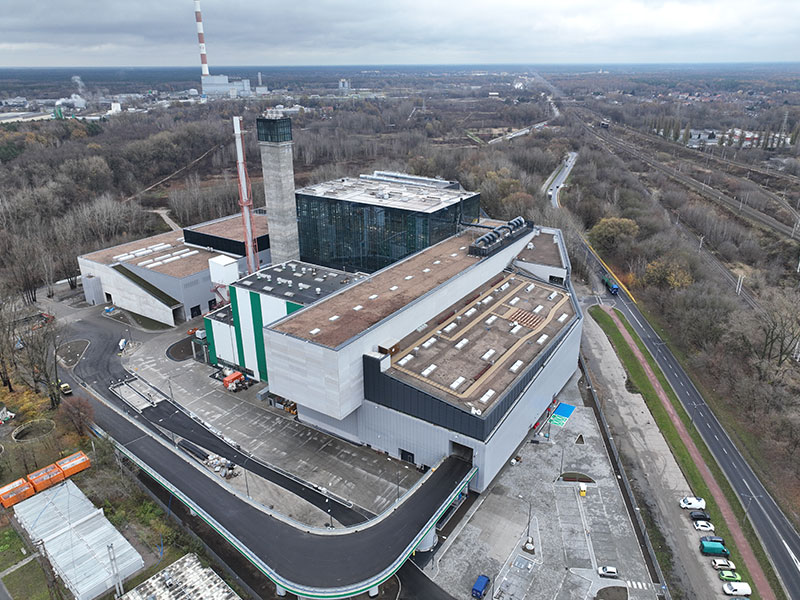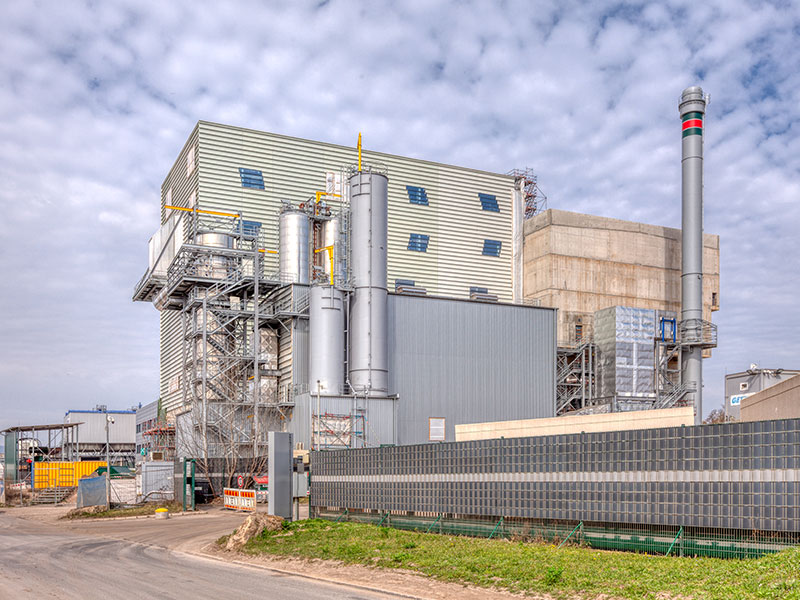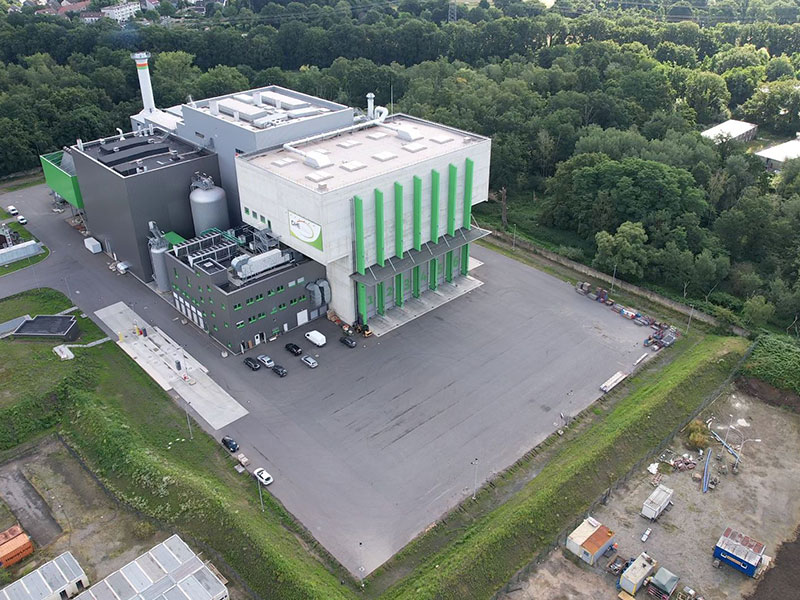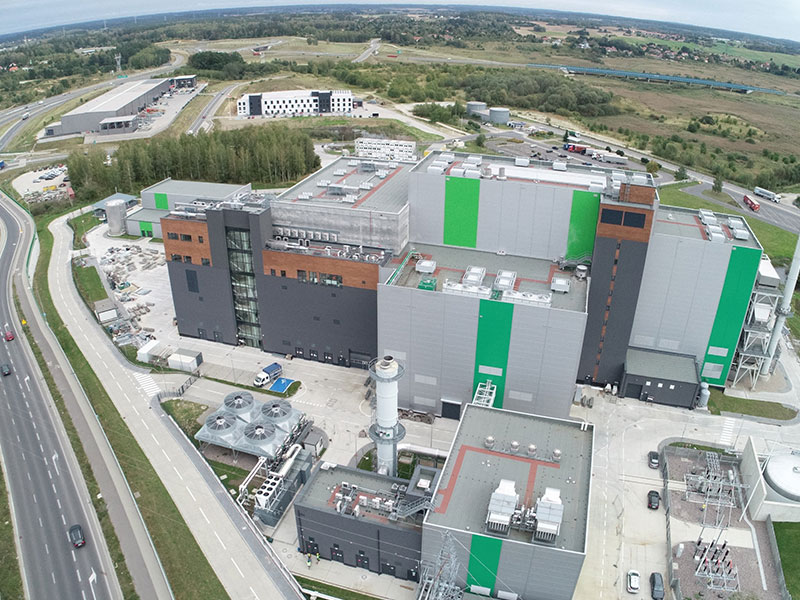Waste-to-Energy

Credit: MPO Warsaw
Improving Poland’s waste management infrastructure: the country’s largest WtE plant is being built in Warsaw
Doosan Lentjes was selected by South Korean general contractor POSCO E&C to supply the grate and boiler systems for the new waste-to-energy plant in Warsaw, Poland. The plant is owned by the municipal waste management company MPO.
The scope of supply includes Doosan Lentjes’ proven air-cooled reciprocating grate, a high-efficiency steam generator, and an SNCR (Selective Non-Catalytic Reduction) system for the reduction of nitrogen oxides in the flue gas.
The plant will thermally treat around 314,000 tonnes of municipal solid waste from the Warsaw region every year – making an important contribution to establishing secure, local disposal capacities that meet the EU’s requirements for sustainable waste management.
The customer benefits from a future-proof solution designed to accommodate changing waste compositions and qualities, ensuring long-term, environmentally sound waste treatment.

Future-proof waste disposal capacities for Wiesbaden
Doosan Lentjes was commissioned as consortium leader to supply the new waste-to-energy plant by the owner and operator, MHKW Wiesbaden GmbH.
The plant comprises one process line, including water-cooled grate, boiler and dry flue gas cleaning.
Once completed, the new power plant will thermally treat 240,000 tonnes of municipal waste and refuse derived fuel (RDF) from the greater Wiesbaden area per year.
The energy contained in the waste is used to produce electricity and district heating.
The multi-stage flue gas cleaning concept consists of a quench, fabric filters and SCR to ensure reliable compliance with the BREF specifications. The cleaned gas is fed to a heat recovery system via an economiser and then discharged via the stack.
The customer receives a future-proof disposal solution whose flexibility allows it to adapt to changing fuel properties.
This means that waste with different compositions and qualities can also be reliably thermally treated over the entire service life of the plant.

First plant of its kind to fully comply with the revised BREFs
Doosan Lentjes was awarded the contract by DHE (Dinslakener Holz-Energiezentrum) to build the lot 1 of the new wood combustion plant, located in Dinslaken, Germany. The order comprises the turnkey delivery, installation and commissioning of two grate-based incineration lines on a chute-to-stack basis.
Once in operation, the new plant will thermally treat about 200,000 tons of waste wood (class l-lll) per year. Applying our effective incineration technology will ensure that the maximum of the climate-friendly energy contained in the wood is harnessed to generate sustainable electricity and heat. This will reduce the share of fossil fuels and save more than 125,000 tons of CO2 per year, helping the City of Dinslaken to pursue its strict decarbonisation policy.
By applying our state-of-the-art dry flue gas cleaning technology, the new wood-fired CHP plant will be the first of its kind to comply with all emission limit values according to the revised European BREF documents (Best Available Techniques Reference Documents).

Strengthening the local waste management infrastructure
The consortium of Doosan Lentjes and Doosan Enerbility was commissioned by plant operator Dobra Energia to build a new waste-to-energy plant in Olsztyn, Poland. The facility is owned by local energy provider MPEC Olsztyn.The turnkey plant has been successfully completed and commissioned.
The scope of supply included the process technology, civil works, and two gas-fired peak load boilers to ensure secure district heating supply.
A proven water-cooled reciprocating grate is used to recover the energy contained in the waste efficiently.
Olsztyn marks the first project of its kind jointly executed by Doosan Lentjes and Doosan Enerbility.
The customer benefited from a seamlessly integrated solution from a single source – combining cutting-edge environmental technologies with international EPC expertise.
Thanks to Doosan Lentjes’ dry Circoclean® flue gas cleaning technology, the plant fully complies with the emission limits set by the revised BAT reference documents.
As the eighth plant of this type to be built in Poland, the new facility in Olsztyn makes a significant contribution to strengthening the country’s waste management infrastructure.
At the same time, it supports the implementation of the EU waste hierarchy, which prioritises energy recovery over conventional landfilling.